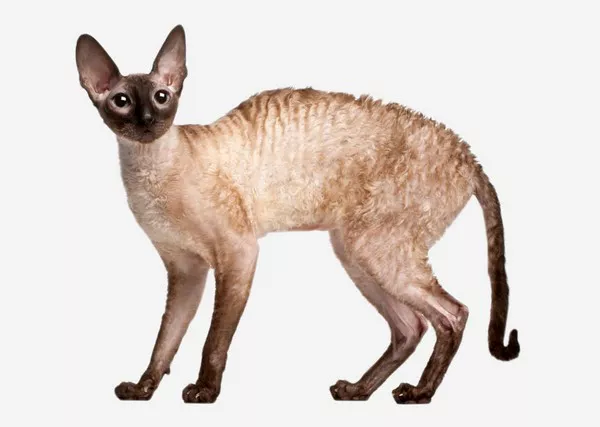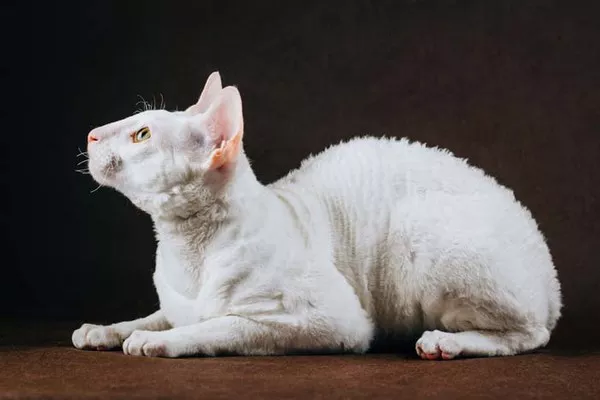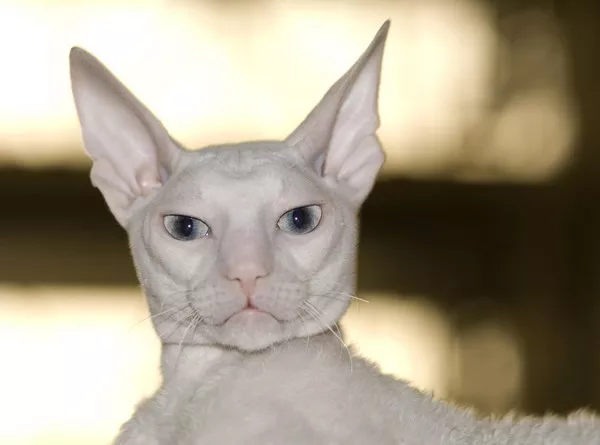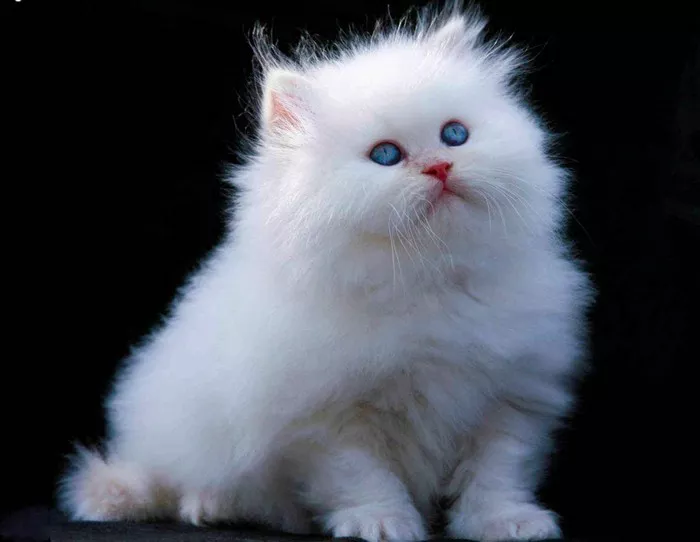Devon Rex kittens, with their playful demeanor and distinctively curly fur, are a delight for cat lovers. However, like all kittens, they have unique sleep patterns that are crucial for their growth and development. Understanding how much these kittens sleep and the factors influencing their sleep patterns can help ensure they are healthy and thriving. This article delves into the intricacies of Devon Rex kittens’ sleep habits, offering comprehensive insights for current and prospective owners.
Understanding Kitten Sleep Patterns
Kittens, including Devon Rexes, have different sleep needs compared to adult cats. Their sleep patterns are influenced by their developmental stage and their need for rapid growth and brain development.
Sleep Requirements of Kittens
On average, kittens can sleep between 16 to 20 hours a day. This extensive sleep is essential for several reasons:
Growth and Development: During sleep, growth hormones are released, which are critical for the rapid growth kittens undergo in their early months.
Energy Restoration: Kittens expend a lot of energy exploring, playing, and learning about their environment. Sleep helps them restore this energy.
Brain Development: Sleep supports cognitive development and memory consolidation, helping kittens learn and remember new skills and behaviors.
Factors Affecting Devon Rex Kittens’ Sleep
Several factors can influence the sleep patterns of Devon Rex kittens, including age, environment, health, and individual temperament.
Age and Development Stage
The amount of sleep a Devon Rex kitten needs can vary depending on its age:
Newborns (0-2 weeks): Newborn kittens sleep almost all the time, waking only to nurse. They are in a critical growth phase, and their bodies require a lot of sleep for proper development.
Young Kittens (3-8 weeks): As they start to explore their surroundings and become more active, they will still sleep a lot but may begin to have more defined sleep-wake cycles.
Older Kittens (9-16 weeks): By this stage, kittens are highly active and curious, requiring substantial sleep to recover from their energetic play sessions.
See Also: Unveiling the Mitted Cornish Rex: A Comprehensive Guide
Environmental Factors
The environment in which a Devon Rex kitten lives can significantly affect its sleep patterns:
Quiet and Safe Space: Kittens need a calm and secure place to sleep. Loud noises or frequent disturbances can interrupt their sleep.
Comfortable Bedding: Providing a warm, soft, and comfortable sleeping area encourages restful sleep.
Lighting: Like most animals, kittens are influenced by natural light cycles. Keeping a consistent day-night cycle helps regulate their sleep patterns.
Health and Nutrition
A kitten’s health and nutritional status play a critical role in their sleep:
Health Issues: Illness or discomfort can disrupt a kitten’s sleep. It’s important to monitor for signs of health problems, such as changes in appetite, behavior, or litter box habits.
Proper Nutrition: A balanced diet is essential for growth and energy. Poor nutrition can lead to lethargy or restlessness, affecting sleep quality.
Individual Temperament
Each Devon Rex kitten has a unique personality, which can influence its sleep:
Active vs. Calm: More active kittens may need more sleep to recover from their high-energy activities, while calmer kittens might have more evenly distributed sleep patterns.
Stress Levels: Kittens that are stressed or anxious may have disrupted sleep. Ensuring a secure and nurturing environment can help alleviate stress.
Typical Sleep Behaviors of Devon Rex Kittens
Understanding the typical sleep behaviors of Devon Rex kittens can help owners ensure their pets are getting the rest they need.
Sleep Cycles
Like all cats, Devon Rex kittens experience different stages of sleep, including:
NREM (Non-Rapid Eye Movement) Sleep: This is the deep sleep phase where the body undergoes physical repair and growth.
REM (Rapid Eye Movement) Sleep: During this lighter sleep phase, the brain is active, and this is when dreaming occurs. Kittens may twitch or move during REM sleep.
Sleep Positions
Kittens often sleep in various positions that indicate their comfort level and security:
Curled Up: This position helps retain body heat and is often a sign that the kitten feels secure.
Stretched Out: A kitten sleeping in a stretched-out position is usually very comfortable and trusts its environment.
On Their Back: This vulnerable position is a strong indicator of trust and a sense of security.
Napping and Play
Kittens have short bursts of intense activity followed by periods of rest:
Short Naps: Kittens often take many short naps throughout the day rather than long periods of continuous sleep.
Play-Sleep Cycle: After intense play sessions, kittens will usually fall asleep quickly, needing to recharge their energy.
Promoting Healthy Sleep Habits
Ensuring that Devon Rex kittens get the right amount of quality sleep is crucial for their overall well-being.
Creating a Sleep-Friendly Environment
Set up a dedicated sleeping area that is:
Quiet and Away from Traffic: Choose a location away from the hustle and bustle of household activities.
Comfortable Bedding: Provide soft, warm bedding. Consider using a cat bed or blanket that retains heat.
Accessible: Ensure the sleeping area is easily accessible, especially for very young kittens who may have difficulty climbing.
Establishing Routines
Kittens thrive on routine. Establishing consistent sleep and play schedules can help regulate their sleep patterns:
Regular Playtimes: Schedule play sessions at the same times each day. This helps burn off energy and encourages sleep.
Consistent Feeding Times: Regular meal times help set a routine that can also influence sleep patterns.
Bedtime Routine: Develop a calming bedtime routine, such as gentle petting or a quiet environment, to signal that it’s time to sleep.
Monitoring Health and Well-being
Regular veterinary check-ups are essential to ensure your kitten is healthy and free from conditions that might disrupt sleep:
Vaccinations and Deworming: Keep up with vaccinations and deworming schedules to prevent illness.
Nutritional Needs: Consult with a veterinarian to ensure your kitten is receiving proper nutrition for its age and growth stage.
Common Sleep-Related Issues and Solutions
While most Devon Rex kittens will sleep well with proper care, some may experience sleep-related issues.
Insomnia or Restlessness
Kittens that have difficulty sleeping may exhibit signs such as:
Pacing or Crying at Night: This can be due to hunger, discomfort, or anxiety.
Frequent Waking: Health issues, such as parasites or digestive problems, can cause restlessness.
Solutions:
Ensure Proper Nutrition: Feed your kitten well-balanced meals.
Comfort and Security: Provide a warm and secure sleeping area.
Veterinary Consultation: If restlessness persists, consult a vet to rule out health issues.
Excessive Sleepiness
While kittens sleep a lot, excessive sleepiness or lethargy might indicate an underlying problem:
Lack of Energy During Waking Hours: This can be a sign of illness or nutritional deficiencies.
Solutions:
Monitor Activity Levels: Ensure your kitten is active and playful when awake.
Balanced Diet: Provide a nutritious diet to support energy needs.
Health Check: Schedule a veterinary check-up to rule out health concerns.
Conclusion
Devon Rex kittens, like all kittens, require a substantial amount of sleep for their growth and development. On average, these kittens sleep between 16 to 20 hours a day, with variations based on age, environment, health, and individual temperament. Understanding and supporting their sleep needs through a conducive environment, proper nutrition, and regular health monitoring ensures they grow into healthy, active cats. By creating a sleep-friendly environment and establishing consistent routines, you can help your Devon Rex kitten get the rest they need to thrive.



























